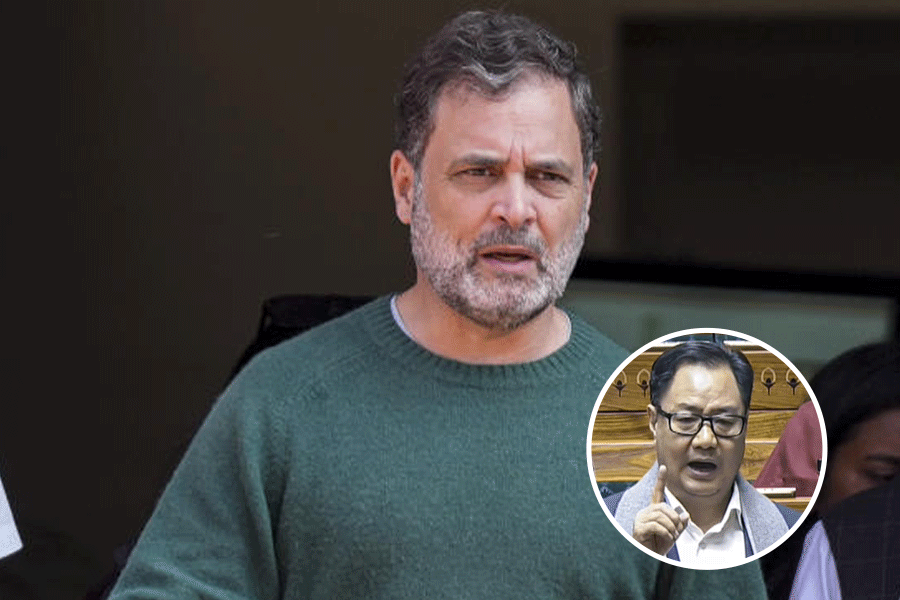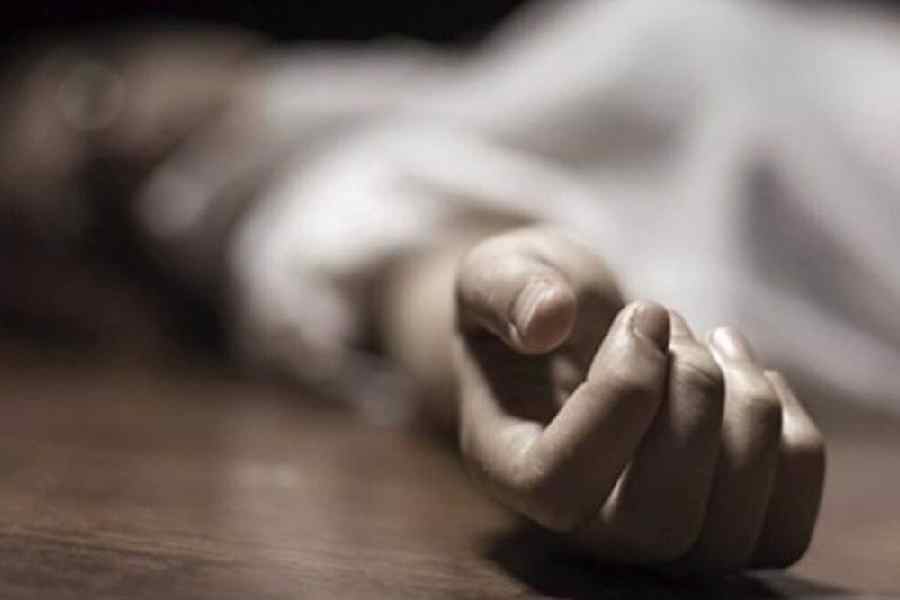.jpg)
London, Nov. 16: Saeed Jaffrey, who has died in London, aged 86, would have been delighted with the nice things that are being said about him, especially by English journalists.
The actor collapsed at his home from a brain haemorrhage and never regained consciousness. He died peacefully in the early hours of November 14 in hospital. His funeral will be in two weeks.
He leaves behind his wife Jennifer Jaffrey, as well as three children (Sakina, Zia, Meera) by his first wife, the actress and cookery author Madhur Jaffrey.
The news of his death was shared on Facebook by his niece Shaheen Aggarwal, who wrote: "Today, a generation of Jaffreys has passed away. Saeed Jaffrey has joined his brothers and sister and is rejoicing in the lap of his Heavenly Father, eternally."
In a career that spanned more than half a century, Saeed made almost 200 screen appearances, working with directors such as John Huston, James Ivory, David Lean, Richard Attenborough and Stephen Frears.
Saeed was probably the most deliciously indiscreet big name actor there has ever been and his career is best reflected not through his long and distinguished CV but through his outrageous anecdotes.
He was in the habit of going up to all those he knew, be it Amitabh Bachchan or the most junior cub reporter, tweaking them by the cheek and begin a conversation with the greeting: "How are you, darling!"#He would be well set if he could have a glass of white wine, and when his long suffering wife, Jennifer, was not looking, he would try and sneak into the kitchen for a second or third or preferably fifth glass.
Jennifer would find out and go chasing after him: "No, Saeed, I said just one!"
He would creep back sheepishly and tell the story of what happened when he was filming John Huston-directed The Man Who Would be King in 1975 with a whole clutch of top stars, including Sean Connery.
At some point during the shoot, Michael Caine realised that everyone had been given a chair to sit under the burning sun - except Saeed.
Saeed would then imitate Caine's rage in a cockney accent at whoever was responsible for the racist slight: "Where's Saeed's f.....g chair?"
This was probably his favourite story.
Saeed would have kissed Peter Bradshaw of The Guardian whose tribute today was headed: "Saeed Jaffrey: a jewel of international cinema."
Bradshaw's article said that Saeed "straddled English-language and Hindi cinema, and brought an urbane wit and seductive charm to everything he did".
Bradshaw said: "I first became aware of Jaffrey for his game supporting role in John Huston's Kipling yarn The Man Who Would Be King (1975) as the loyal and feisty Gurkha Billy Fish, who acts as translator and fixer for the two soldier-of-fortune chancers played by Sean Connery and Michael Caine. It was a bit of a stereotypical role, but Jaffrey's natural sympathy and ease elevated it."#He began: "Saeed Jaffrey was a character actor of enormous accomplishment, urbane wit and avuncular charm, deeply honoured in UK theatrical circles for his groundbreaking Shakespearian tours of India. His very unparochial career let him straddle two different kinds of cinema - Hindi and English language - and also subsets within these: auteur cinema and Bollywood, British and Hollywood, as well as TV both in high-gloss drama and soapy form. To all he brought intelligence, a lifetime's accumulation of technique and style, and a seductive, resonant voice."
He went on: "He was an invaluable presence in Richard Attenborough's Gandhi (1982) and David Lean's A Passage to India (1984). On British TV, he starred in dramas ranging from The Jewel in the Crown to Coronation Street. In fact, from a British perspective, his career was part of the whole colonial and post-colonial story in screen culture...."
"But he is probably most famous for a key role in Satyajit Ray's masterly drama Shatranj Ke Khilari, or The Chess Players (1977): a delicate, humorous, humane and mysterious Raj drama. Jaffrey embodies all these qualities. He plays Mir Roshan Ali, one of two Indian noblemen in Lucknow in 1856 who are utterly obsessed with the game of chess - a refined but apparently decadent pastime which symbolises their neglect of their nation's defences, allowing the British to take over. The British are represented by the puce-faced General Outram, played by Richard Attenborough," Bradshaw added.His Hindi films included Raj Kapoor's Ram Teri Ganga Maili and Indra Kumar's Dil.
Born in Maler Kotla, Punjab in 1929, Saeed studied history to post-graduate level before embarking on a life in the theatre that took him from Delhi, where he founded his own English language company, Unity theatre, to the Royal Academy of Dramatic Arts in London.
After visiting the US on a Fulbright scholarship in the late 1950s, he returned with Unity to tour Shakespeare - the first Indian actor-director and company to do so. Saeed was also the first Indian performer to receive an OBE for his services to drama in the UK.When Richard Attenborough died in August 2014, Saeed spoke to The Telegraph about playing Sardar Vallabhbhai Patel in Gandhi and the director's style.
"He was a gardening director - he knew how much water and sunlight to give each actor and then he left you alone," said Saeed. "The best directors are those who have been actors themselves. He said to Ben Kingsley, 'Ben darling, it doesn't matter if it's the 13th take or the 14th or the 15th. I won't say 'Cut' until you are satisfied and I am satisfied'."
"He has put Gandhi and India on the world map - a lovely man," mused Saeed.
Most people will say the same about Saeed Jaffrey.

.jpg)








